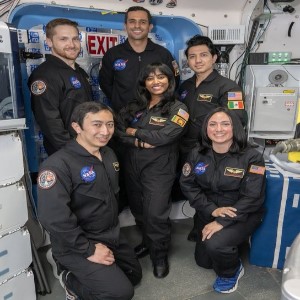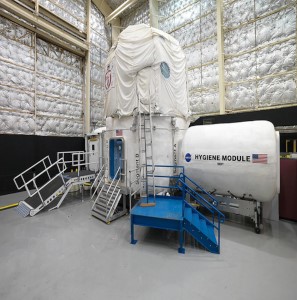Using AI to control energy for indoor agriculture
30 September 2024
Emirati joins NASA Mars simulation
Published online 24 June 2024
Shareef Al Romaithi is participating in a 45-day experiment that studies the impact of long-term space travel

NASA's Johnson Space Center and TDRA
An Emirati pilot is taking part in a study at NASA’s Johnson Space Center in Houston to measure the physiological and psychological impact of travel to Mars.
Shareef Al Romaithi will undergo many tests in the 45-day program in a 60m2 simulation facility.
The study is part of the UAE Analog Programme, led by the Mohammed Bin Rashid Space Center (MBRSC) under the UAE Space Agency. Al Romaithi will join the NASA Human Exploration Research Analog (HERA) team.
Al Romaithi, a pilot for Etihad Airways, will conduct six experiments for UAE universities, including the United Arab Emirates University, Mohammed Bin Rashid University of Medicine and Health Sciences, and the American University of Sharjah.
Lisa Spence, former director of NASA’s Flight Analogs project, explained that scientists are studying the behavior of crew members and measuring how stress levels affects their performance.
Mohamed Ramy El-Maarry, director of the Space and Planetary Sciences Group at Khalifa University, explains that missions to Mars can last two years.

Al Romaithi’s simulation is part of a larger effort by the UAE to develop its space program and collaborate with international space agencies. He is a pilot engineer with 9,000 flying experience, a doctoral degree in aviation, and three master’s degrees, one of which is focused on space operations.
El Maarry explains that space is a strategic priority for the UAE, with the sector spend surpassing $6 billion in 2023.
Link to original article: https://www.natureasia.com/ar/nmiddleeast/article/10.1038/nmiddleeast.2024.160
doi:10.1038/nmiddleeast.2024.196
Stay connected: